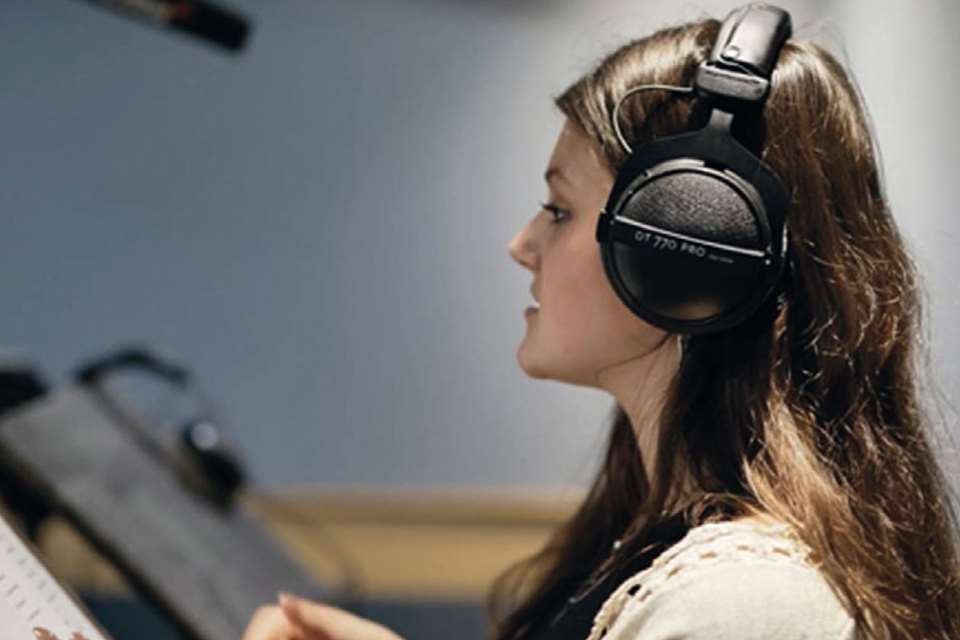Rose Bruford's Masters in Queer Performance: Thinking queerly
Freya Parr
Sunday, October 1, 2023
Freya Parr meets those behind the hotly discussed Queer Performance course at Rose Bruford College to find out how such work can be brought into the academic space.

Moritz Richter
This term, Rose Bruford College has launched a Masters programme in Queer Performance, the first course of its kind available anywhere in the world. Delivered by queer artists, theatremakers, academics and researchers, the programme combines distanced learning and in-person training so that queer theatremakers from anywhere in the world can be part of the course and continue their work as artists outside their training. The course will explore a range of creative disciplines, from drag and cabaret to writing and art for live theatre and digital work.
For each of the four modules completed across the programme, there will be an intensive in-person week or fortnight-long residency. One of these will take place abroad, with the rest held in the UK. During each residency, students will take part in workshops to explore and practise different types of queer performance. These are supported by online learning during term time, giving mentorship, seminars, tutorials and opportunities to discuss and refine the students' approaches to being queer performers. The online backbone of the course means that students can live anywhere around the globe – but will be required to travel to be in attendance for the residencies.
A huge impact and importance
‘Queer performance is already everywhere – on stages, screens, streets, dance floors, galleries, fields and festivals – and now it finally has its own dedicated space in the academy at Rose Bruford College,’ says Dr Phoebe Patey-Ferguson, the director of this new course, who, as well as working as an academic, is also a practising live artist and dramaturg working in contemporary queer theatre. ‘There are so many brilliant things happening in every venue, in every stage, in every major city. The impact and importance of that is not being recognised, so I'm hoping [this course] inspires different ways of training in queer performance and other ways of entering into this kind of study.’
Of course, there's a lot of value in bringing queer performance into the academic space, but this course wants students to continue to gig and tour as performers. The course will aim to examine and expand queer performance practice, inviting students to create their own work as part of their study. Patey-Ferguson is focused on bringing together myriad approaches to queer performance and allowing students to experiment with different practices, rather than privileging one kind of practice over another. ‘I think one of the really exciting opportunities that this MA offers is the experimentation with different approaches to queer pedagogy,’ they say. ‘How do we bring vast amounts of knowledge and experience into a room and use that as real energy in our making process?’. As part of this, the course's teaching will encouraging the questioning of dominant narratives and methodologies, asking students to consider those who have been forgotten in established histories.
The content
The first module, ‘Thinking Queerly’, will examine how performance art, drag, theatre, street performance and cabaret has played a role in queer lives across various global cultures, and how significant moments in queer history and cultural theory have impacted the development of performance strategies. In the second module, ‘Creatures of the Night’, students will research and watch queer cabaret and drag in their own local contexts and online, as well as developing their own performances for a public festival held at the end of the module. This is followed by a module on ‘Queer Dramaturgies’, in which students will make and devise works in collaboration with one another, with opportunities for creative writing, video, sound, design and digital performance. The course is completed with an ‘Independent Research Project’: a supervision dissertation performed in London during the students' final residency.
Overdue but crucial
Joining Patey-Ferguson in the teaching line-up is Professor Stephen Farrier, scholar of drag and popular queer performance, and queer theatre Professor Brian Lobel. Students can opt to study on a full-time basis, which takes place over 15 months, or part-time over 28 months. For those interested in applying for the 2024 course intake, you'll either need an honours degree with a 2:1 or above in a related subject area or to be able to show you have extensive professional experience.
The launch of a course like this feels long overdue, with queer artists having dominated underground and fringe spaces the world over for many years. But the fact that it's finally being recognised as both an academic practice and a career path by institutions like Rose Bruford is a brilliant step in the right direction. ‘It's important that this course generates more opportunities and more ways to engage with something that is so vital and important in the wider cultural scene,’ says Patey-Ferguson. But do they have any idea what the course will provide in terms of tangible impact? ‘This MA – and queer performance in general – is about world building and future imagining. I am confident that those who are making queer performance will change the world, but part of the thrill is not knowing what might happen – or the way in which it will change the world.’
For more information, or to apply for the MA in Queer Performance at Rose Bruford College, visit bruford.ac.uk/study/postgraduate-courses/queer-performance





